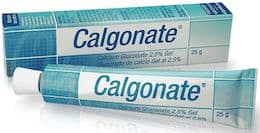
-----
Formulation of pickling paste for stainless steel
Q. How would you spot passivate a weld in 316L SS using nitric acid in a suspension, specifically what concentration of nitric acid would be used, what would be the gel substance, and what time period would you recommend.
Any assistance would be appreciated.
Best Regards,
Chris [last name deleted for privacy by Editor]1999
A. There are commercial products for local passivation of stainless steels after welding. Try asking at a local welding shop. I know that Avesta, a stainless steel company, is one supplier of a passivation paste product.

Larry Hanke
Minneapolis, Minnesota
A. You can perhaps gel the nitric acid with Fumed Silica [affil link].
My prejudice is I dislike gelled acid for safety reasons. Further, since acids function by reacting with metal, and the gel impedes fresh solution flow to the surface, I think they are less effective than liquid acids. But I would think that you can just follow the regular passivation spec (QQ-P-35C (canceled) [link is to free spec at Defense Logistics Agency, dla.mil]) for nitric or nitric-chromic passivation.
Is it impractical to just repassivate the whole welded structure?

Ted Mooney, P.E.
Striving to live Aloha
finishing.com - Pine Beach, New Jersey
Ted is available for instant help
or longer-term assistance.
A. Chris, You could use Brush Electroplating to selectively passivate the areas that need to be done. Depending on the size of the areas it could go fairly quick.
David Crocker- Valencia, California
Thickeners for Pickling Paste
Q. I'm interested in knowing what kind of thickeners I can use with strong acids, like nitric acid, to prepare pickling paste or a paste with phosphoric acid to phosphatize metal surfaces. I'm working with resins for coatings and paints in general, and this kind of knowledge helps me in preparing surfaces before painting. As I'm in Brazil, commercial names are difficult to find, so, I'd like to know the chemical names or the name of raw materials suppliers. All suggestions are welcome. Thanks in advance.
Sergio Henrique Klein- Novo Hamburgo - RS - Brazil
2000
A. Dear all,
For thickening weak or strong acids you can use Ethomeen C12 from Akzo
or Cecajels from Ceca. Cecajel 210 for many Weak and Strong acids (HF,
Phosphoric, Citric); Cecajel 300 for Sulfamic acid; Cecajel 250 for
Hydrochloric acid.
Hope this helps.
- Hoofddorp, Netherlands
February 1, 2012
A. Thanks Ron for doing what you could. Sergio asked for the chemical names of raw materials and I think fumed silica and barium sulphate are the most common generic thickeners, although maybe not the equal of commercial products :-)
I suspect, but don't know, that fumed silica would be unsatisfactory for mixes that contain hydrofluoric acid.
Regards,

Ted Mooney, P.E.
Striving to live Aloha
finishing.com - Pine Beach, New Jersey
Ted is available for instant help
or longer-term assistance.
Multiple threads merged: please forgive chronology errors and repetition 🙂
Q. I would be interested to know what gelling or thickening agents or binders can be used for acid pickling which are stable to nitric acid (50% conc.). Most of the gels I tried are not resistant to higher concentrations of nitric acid. ⇐ answer?
Shashibhushan Vaidyapretreatment and cleaning chemicals - Mumbai, Maharashtra, India
2003
Q. To prepare the paste with HF & HNO3 what filler to be added?
Rajendran Sunmetal treatment chemicals - Chennai, Tamilnadu, India
2004
A. Hi Rajendran. The more common thickening agents will not work because the HF will attack Fumed Silica [affil link] and the HNO3 will attack cellulose thickening agents. Sorry, I don't know the answer. One thing you could do is review expired patents on the subject, or you could buy some and reverse engineer them.

Ted Mooney, P.E.
Striving to live Aloha
finishing.com - Pine Beach, New Jersey
Ted is available for instant help
or longer-term assistance.
A. The thickener is barium sulphate.

Jeffrey Holmes, CEF
Spartanburg, South Carolina
2004
![]() Dear Mr.Sun,
Dear Mr.Sun,
It will be some really mad person who will disclose its proprietary chemistry to you and the world. You may better go to some Chennai five star hotel and ask the recipe of their speciality cuisine and get same feedback from them.
- Texas

Never use HF anywhere unless trained!
If you do, you MUST have the antidote gel on hand for instant use!
Calcium Gluconate
for HF acid burns

on eBay or Amazon
(affil link)
![]() Hi, Jenny. You're right, of course, that proprietary knowledge won't be shared. Still, there is a constant & continuing shift between what constitutes proprietary chemistry versus what is generic info that is discussed in technical conferences, journal articles, and industry websites. The worldwide patent system, with patents having a limited life of 20 years, was established with the specific goal of encouraging progress through ideas becoming public knowledge after a time.
Hi, Jenny. You're right, of course, that proprietary knowledge won't be shared. Still, there is a constant & continuing shift between what constitutes proprietary chemistry versus what is generic info that is discussed in technical conferences, journal articles, and industry websites. The worldwide patent system, with patents having a limited life of 20 years, was established with the specific goal of encouraging progress through ideas becoming public knowledge after a time.
Some people may consider the thickening agent for gelled acids to be proprietary information but, as you see, some other people consider at least some thickeners to be just generic info.
Users must make sure they have the calcium gluconate first-aid antidote on hand at all times, and a clear plan for proper follow-up medical treatment before even getting near hydrofluoric acid.
Regards,

Ted Mooney, P.E.
Striving to live Aloha
finishing.com - Pine Beach, New Jersey
Ted is available for instant help
or longer-term assistance.
Stainless Steel Pickling Alternatives
Q. Dear sir, I don't have a pickling solution and pickling paste how do I make this solution? urgent ... thanks everyone ... if any can give me some info. Please, I will very appreciate. thanks
Jason Leongchemical finishing - Kuala Lumpur, Selangor, Malaysia
2007
A. Buy a copy of ASTM A380
, 'Standard Practice for Cleaning, Descaling, and Passivation of Stainless Steel Parts, Equipment, and Systems.' It gives many solutions as well as useful application information. Note that improper usage can cause intergranular corrosion or hydrogen embrittlement in some cases.
Pickling paste is usually pickling solution thickened with an inert ceramic powder, but perhaps most users buy from welding suppliers.
- Goleta, California
Rest in peace, Ken. Thank you for your hard work which the finishing world, and we at finishing.com, continue to benefit from.
Pickling paste without hydrofluoric acid
Q. Is there a pickling paste available for post weld finishing of stainless steel available with no hydrofluoric acid. I'm aware of <0.5% pastes but not Zero hydrofluoric.
We produce a mobile electropolisher, so are interested in developments in pickling paste
manufacturer of post weld finishing machine - Ballina, NSW, Australia
June 10, 2009
Ed. note: This RFQ is outdated, but technical replies are welcome, and readers are encouraged to post their own RFQs. But no public commercial suggestions please ( huh? why?).
A. This is a very difficult task. We have successfully developed green" pickling pastes without nitric acid for stainless steel, carbon steel, titanium. We are currently working on eliminating hydrofluoric acid also. However work is not completed yet.

Anna Berkovich
Russamer Lab - Pittsburgh, Pennsylvania
(ed. update July, 2025: sorry, Anna has retired)
Q. I am a person involved in pickling & passivation of Stainless Steel. Right now I am doing a conventional method. The process is by the use of hydrofluoric & nitric in a proportion.(Liquid form)
I want to make use of the same proportion in paste/gel form.
So kindly let me know that which ingredient to be used for the above to bind it in paste/gel form without loosing the properties of the product.
I am looking for the binder to make it happen.
⇐ answer?
- - Bogra, Bangladesh
April 22, 2012
Q. Hi I am interested to manufacture stainless steel pickling paste/gel. The product is made by using both nitric and hydrofluoric acid with a gelling agent. Kindly assist me. Thanking you and await your reply. ⇐ answer?
Anil patel- Nairobi Kenya
April 14, 2013
Q. Kindly let me know how do I manufacture pickling paste for stainless steel without the use of hydrofluoric acid and nitric acid.
Anal Kulkarnichemicals - Mumbai, Maharashtra, India
May 13, 2013
A. Anal,
Gels production for pickling, passivation for stainless steel, carbon steel, titanium - are proprietary.

Anna Berkovich
Russamer Lab - Pittsburgh, Pennsylvania
(ed. update July, 2025: sorry, Anna has retired)
May 14, 2013
Q. I am trying to make a pickling paste and have tried barium Sulphate as suggested.
Formula contained HF 5% and Nitric 30%, but Barium sulphate didn't thicken it. Just wondering what I have done wrong? Please help.
Regards,
- Queensland Australia
October 19, 2014
A. Not enough barium sulphate. Keep adding until it is the consistency you want.

Jeffrey Holmes, CEF
Spartanburg, South Carolina
Q. How to convert nitric acid and hydrofluoric acid in gel or paste form
akshata ghadi- mumbai Maharashtra India
November 11, 2018

Never use HF anywhere unless trained!
If you do, you MUST have the antidote gel on hand for instant use!
Calcium Gluconate
for HF acid burns

on eBay or Amazon
(affil link)
A. Hi akshata. As you see, we added your posting to a thread where the question was already answered. But please be aware that when you jellify this very dangerous acid, allowing it to be placed onto surfaces and just sit there where people can potentially be unknowingly exposed to it, you drastically increase its dangers. Please make sure you that are a highly responsible steward for the risks you will be creating by creating a failsafe plan for its removal before anyone can touch it. Thanks for your understanding.
Regards,

Ted Mooney, P.E. RET
Striving to live Aloha
finishing.com - Pine Beach, New Jersey
Ted is available for instant help
or longer-term assistance.
(this entry appended to this thread by editor in lieu of spawning a duplicative thread)
PICKLING PASTE HOW TO GEL FORM ?
Q. Hello ,
I need your help with a product.
As you know, we use pickling gels for stainless steel.
It consists of hydrofluoric + nitric acid.
So how can I get these products in Gel form?
- IST TURKEY
October 9, 2020
A. Hi Gokay. We appended your inquiry to a thread which should answer your questions, but feel free to continue the discussion. Good luck.
|
|
Readers, when practical, please search the site before starting a topic. A new topichas zero search engine coverage for people to even find your question, and Google penalizes us for duplicative topics, so it will never appear on search engines even when answered :-( |
Luck & Regards,

Ted Mooney, P.E. RET
Striving to live Aloha
finishing.com - Pine Beach, New Jersey
Ted is available for instant help
or longer-term assistance.
October 2020
Hi Gokay,
Preparing pickling paste does not involve mixing with organics. The proprietary know-how has been sold to Bama technologies, Italy many years ago. Thanks to in-house mixing, Bama won numerous contracts for maintenance cleaning of large vessels for bio and food industries.
The gels compositions can be altered for summer temperature, for carbon steel, stainless steel, titanium. It is possible to mix 'green" gels, gels for passivation only.

Anna Berkovich
Russamer Lab - Pittsburgh, Pennsylvania
(ed. update July, 2025: sorry, Anna has retired)
Q, A, or Comment on THIS thread -or- Start a NEW Thread